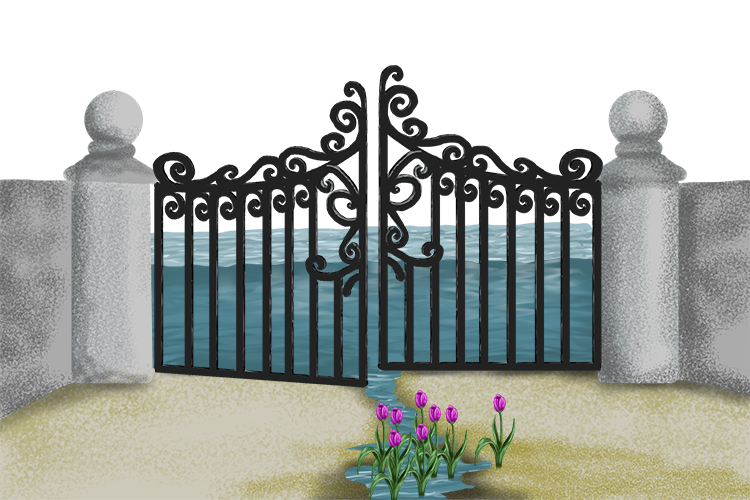Irrigation – Applying water to land in order to supply crops and other plants with necessary water
To remember the meaning of the term Irrigation, use the following mnemonic:
The irritable gates' action (irrigation) is to open and apply controlled amounts of water to plants at needed intervals.

Irrigation is the watering of crops by bringing in water from pipes, canals, sprinklers or other man-made means, rather than depending on rainfall alone.
Regions with little rainfall would be unable to sustain agriculture without irrigation. In areas that have irregular rain, irrigation improves crop growth and quality.
By allowing farmers to grow crops on a dependable basis, irrigation leads to more reliable food supplies.
However, there can also be downsides to irrigation. These may include waterlogging, changes to the soil's salinity (salt content) and levels of acidity, reduced aeration of soil, pollution of underground water and the creation of a colder and damper climate, possibly causing outbreaks of disease such as malaria.




